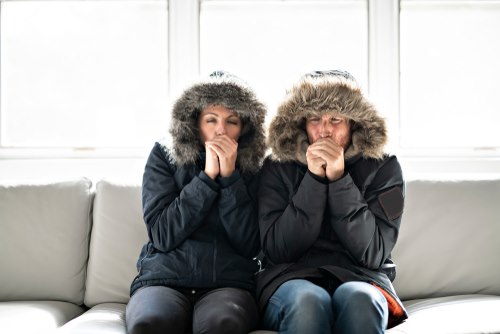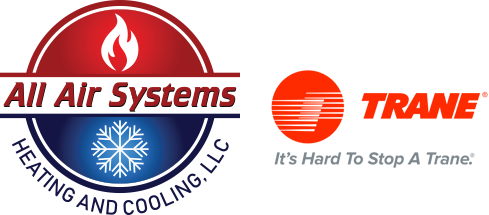Imagine it’s the middle of winter at the Jersey Shore, and it’s cold outside. All of a sudden, the temperature inside your home begins to drop. There’s no heat coming through the vents. You try the thermostat, the breakers, the pilot light—but none of the usual tricks bring your furnace back to life.
Dealing with a furnace breakdown in the middle of winter in Ocean and Monmouth County, NJ is nobody’s idea of a good time, but it does happen—and it’s important to know exactly what to do.
1. Do you smell gas?
When the furnace goes out, the first order of business should be your family’s immediate safety. Natural gas has no odor, but a sulfuric compound called mercaptan is added so that leaks can be detected by smell. If you notice a sulfuric or “rotten egg” odor in your home, this could be the cause of your furnace breakdown—and it means that you and your family should leave the house immediately. Call your gas company immediately and stay away from the house until professional help arrives. When it comes to gas leaks, there’s no reason to risk it.

Call 732-888-0952 or Contact Us for a Free Heating and Cooling Quote in
Monmouth and Ocean County, New Jersey!
2. Troubleshoot
If there’s no gas leak, consider the possibility that your furnace problem is something very simple. Is your pilot light running? Did the fuse that runs your furnace blow out. Did the circuit breaker trip? Is your thermostat broken or set too low? If you discover one of these problems, and are confident fixing it yourself, you could be back in business in no time. Otherwise, it’s best to call an HVAC specialist and continue on to the next step.
3. Use alternative heat sources
If your furnace breaks down at night or during a holiday, you may have to wait hours or even days for a technician to show up. Now is the time for the safe use of wood stoves and fireplaces, if you have them. Portable space heaters can also make a difference. Make every effort to seal the existing heat inside your home by closing all the windows tight, drawing the curtain, and insulating cracks under the doors with blankets.
4. Keep the pipes warm
Frozen water pipes are the last thing you need when the furnace is down—but if the pipes get cold enough, that’s exactly what will happen. Hopefully you’ll get professional help before the temperature gets this low, but if not, you can place a portable heater near the main water pipe to keep it from freezing.
5. Call in the pros
As long as you choose a qualified HVAC specialist, getting your furnace fixed will be fast and affordable. You may be tempted to diagnose and fix the problem on your own to save cash, but unless you’re trained and experienced, this often ends up costing more. Never attempt to repair or work with the gas lines leading into your furnace, as this is both dangerous and illegal without the proper license.
Getting your furnace up and running
An HVAC specialist will be able to quickly and effectively diagnose your ailing furnace. Most of the time, the repair will be minor. It’s always a good idea to follow a routine preventative maintenance schedule to avoid breakdowns—especially during the winter when heat is crucial.
